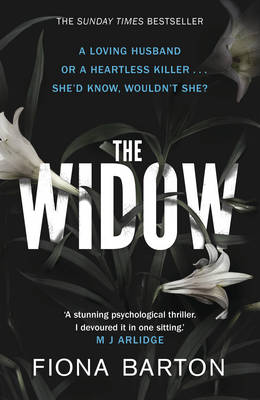Reviewed by Leah on
Now that that's out of the way (I feel SO much better) I can talk about the book itself. The Widow is very much an intriguing read, because I've never read a novel before like this one, and you do wonder when it comes to people like the Taylors', what kind of wife or woman can stand by someone who's accused of something so horrific? A wishy-washy woman with no backbone is the answer, and so we have Jean Taylor. Not to be rude but when the book started, and she was talking about her simple life and simple job, I thought maybe there was something wrong with her? But no, she just lacks backbone, and while I enjoyed her narrative, I didn't like her. I genuinely expected some kind of mouth-dropping twist at the end, that Jean was not all she seemed, and I was kind of disappointed she was the same the whole novel.
The real story for me was that of Kate, the journalist trying to get to the bottom of Jean's story, and of Bob Sparkes, the detective trying to find Bella. You really root for both of them, because you really want to know what happened to Bella. Were they wrong about Glen? Right? Where did Bella go? A child doesn't just vanish into thin air. And Bob's dedication was to be applauded, because you want an officer to go as far as he can go to try and get answers. And I liked Kate, too. Her dogged determination was to be admired, and she seemed far nicer than your typical journalist.
I've long said that authors who write psychological thrillers are crap at endings. They very rarely get it right, and usually leave you with a ton of questions and this was the case again. We got some sort of resolution, but I kinda wanted to know what happened after that. And I still thought there was something amiss about Jean Taylor. That she wasn't as sweet and innocent as she made herself out to be, and I just waited and waited for the gob-smacking twist that was never to appear. That's another problem with these books, you expect a twist and end up disappointed when there's a relatively mundane ending. For all that I've said I liked this book, it kept me reading, I just thought Jean Taylor was the most unreliable narrator I've ever met and I wouldn't trust her as far as I could throw her.
Reading updates
- Started reading
- 14 February, 2016: Finished reading
- 14 February, 2016: Reviewed
